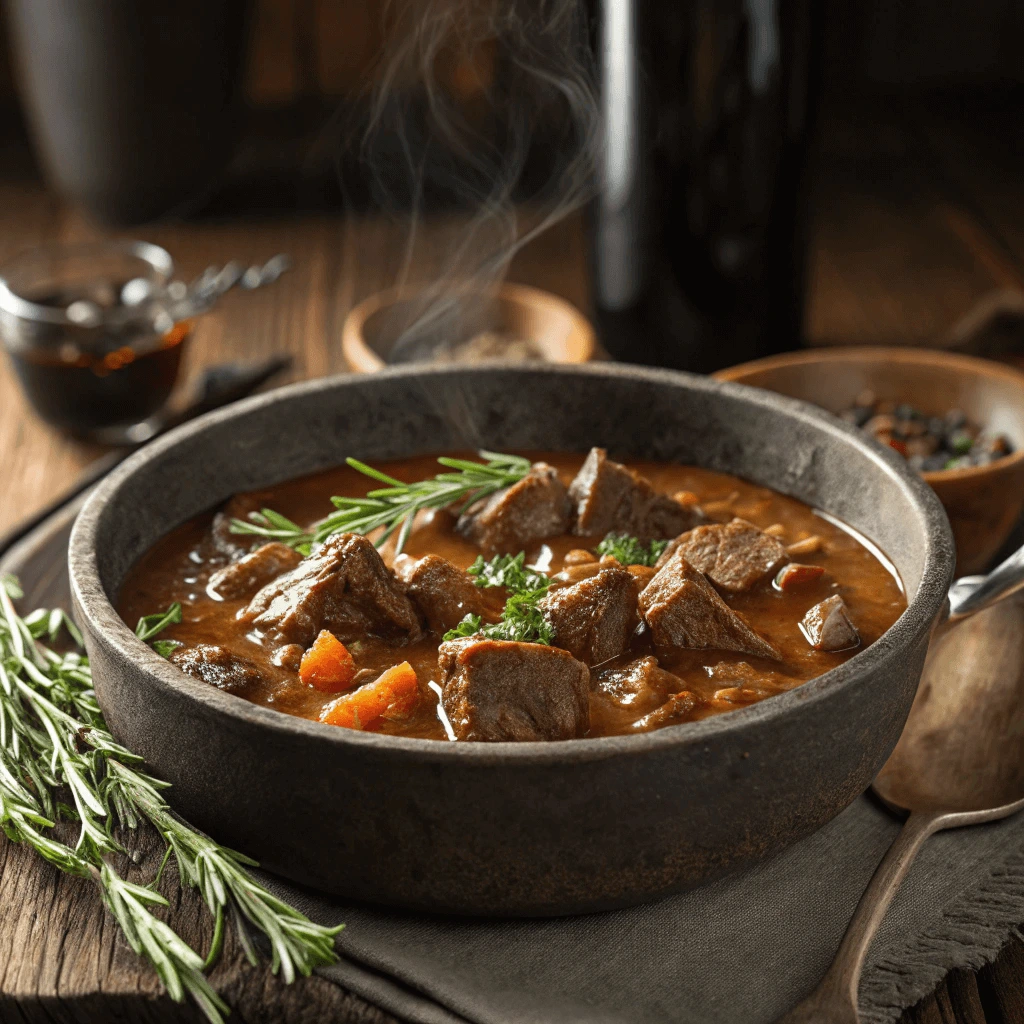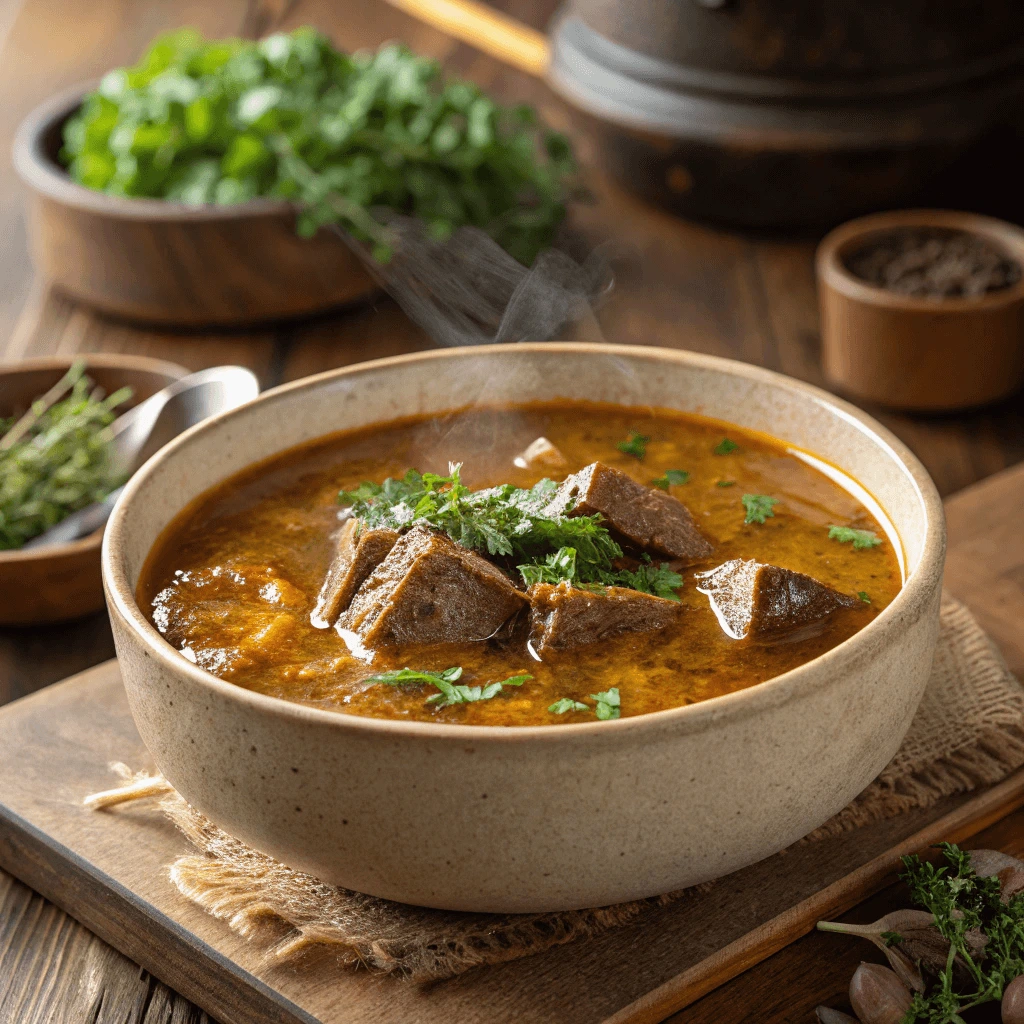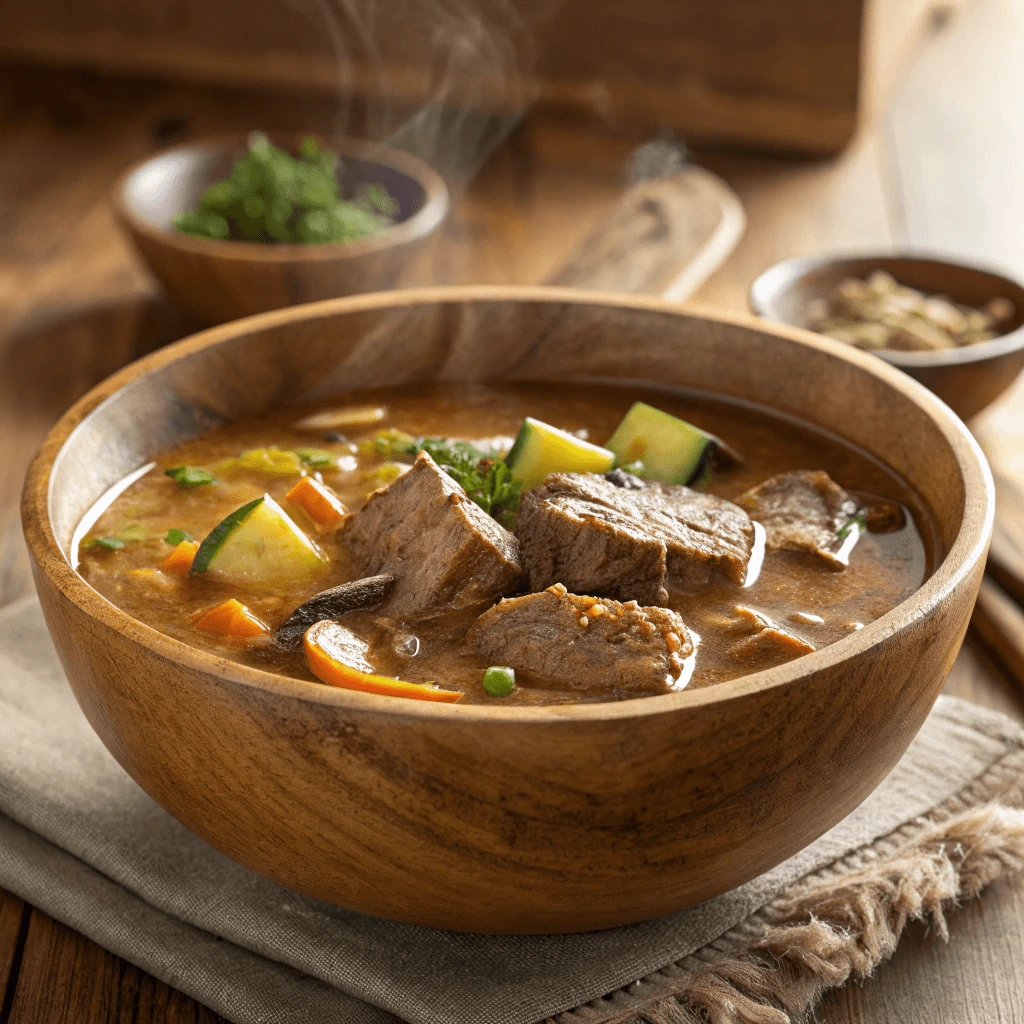Hearty carnivore diet soups are the perfect solution for anyone looking to enjoy rich, flavorful meals while sticking to a nutrient-dense, meat-based lifestyle. Packed with high-quality protein, healthy fats, and essential vitamins, these soups not only nourish the body but also help promote muscle growth, support satiety, and enhance overall health. Whether you’re looking for a filling meal after a workout or simply want a comforting bowl of soup, hearty carnivore diet soups are a satisfying and delicious choice. In this post, we will explore some of the best recipes, the benefits they offer, and how you can easily incorporate them into your carnivore diet routine.
Why Soups Are Ideal for the Carnivore Diet

Benefits of Warm, Meat-Based Meals
Warm meat-based meals bring many advantages for carnivore diet followers. They offer comfort, help digestion, and deliver key nutrients in an easy-to-absorb way.
Soothes Digestion and Supports Comfort
Eating warm soups relaxes your digestive system and helps break down food more easily. The heat stimulates saliva and digestive juices, making it easier for your body to process meat. This gentle approach can ease stomach discomfort and support gut health.
Keeps You Hydrated
Soups contain liquids that help keep you hydrated. Proper hydration improves digestion and helps your body absorb nutrients like amino acids and minerals more efficiently.
Easier to Eat and Digest
Soups soften tough meat, making it easier to chew and digest. This is great if you have sensitive teeth or digestion issues but still want a protein-rich meal.
Nutrient Density Without Carbs
Carnivore diet soups offer impressive nutrient density while containing zero carbohydrates. This means you get vital nutrients without any sugars or fiber.
Complete Protein Source
Meat provides all the essential amino acids your body needs. These proteins help build muscle, repair tissues, and support important bodily functions without any carbs interfering.
Packed with Vitamins and Minerals
Beef, chicken, and organ meats supply key vitamins like B12 and minerals such as iron and zinc. These nutrients boost energy, immunity, and overall health.
Healthy Fats for Energy
Animal fats in soups give lasting energy and promote fullness. They also help your body absorb important fat-soluble vitamins, supporting balanced nutrition on a carb-free diet.
Simplifying Meal Prep and Batch Cooking
Preparing meals ahead of time can make sticking to the carnivore diet easier and more enjoyable. Soups lend themselves well to batch cooking, saving you time and effort during busy days.
Save Time with Batch Cooking
Making large batches of carnivore soup means you cook once and eat multiple times. This approach reduces daily cooking stress and helps maintain a consistent diet without last-minute meal decisions.
Easy Storage and Reheating
Soups store well in the fridge or freezer. You can portion out meals into containers and simply reheat when hungry. This convenience encourages sticking to your carnivore plan even on hectic days.
Flexible Ingredients and Portions
Batch cooking allows you to adjust recipes easily based on what meats or broths you have available. You can also control portion sizes, ensuring you meet your protein and fat needs without waste.
Key Ingredients for Hearty Carnivore Soups
Choosing the Right Cuts
Selecting the right meat cuts plays a crucial role in making your carnivore soups both delicious and nutrient-packed. Different cuts offer varying flavors, textures, and nutritional benefits.
Beef: Rich and Versatile
Beef remains a staple for carnivore soups due to its rich flavor and protein content. Cuts like chuck roast, short ribs, or brisket provide excellent marbling, which adds natural fat and tenderness. These cuts break down well during slow cooking, making your soup hearty and satisfying.
Chicken Thighs: Flavorful and Fatty
Chicken thighs bring moistness and depth to soups because of their higher fat content compared to chicken breasts. The skin-on variety enhances richness and helps maintain juiciness during cooking. Dark meat also contains more nutrients like iron and zinc, which support overall health.
Organ Meats: Nutrient Powerhouses
Incorporating organ meats such as liver and heart elevates the nutrient density of your soups. Liver delivers a concentrated source of vitamin A, B vitamins, and essential minerals, while heart provides CoQ10 and high-quality protein. Introducing organ meats in small amounts can boost your meal’s health benefits without overpowering the flavor.
The Role of Bone Broth Without Additives
Bone broth plays a vital role in carnivore diet soups by enhancing flavor and nutrient content—without relying on additives or artificial ingredients. Choosing pure bone broth helps you keep your meals clean and nourishing.
Nutrient-Rich Base for Soups
Bone broth naturally contains minerals like calcium, magnesium, and phosphorus, which support bone health and overall body function. It also provides amino acids such as glycine and proline, which aid in digestion and tissue repair.
Enhances Flavor Naturally
Using homemade or high-quality bone broth adds rich, savory flavor to your soups without the need for seasoning packets or artificial additives. This natural taste makes your meals more satisfying and enjoyable.
Supports Hydration and Digestion
Bone broth helps maintain hydration with its water content, electrolytes, and minerals. It also supports gut health by promoting a healthy digestive lining, which can improve nutrient absorption and reduce inflammation.
Fats that Add Flavor and Fuel
Fats play a crucial role in carnivore diet soups. They not only enhance flavor but also provide sustained energy and help your body absorb vital nutrients.
Flavor Enhancers
Animal fats like beef tallow, chicken fat (schmaltz), and butter add rich, savory depth to soups. These fats elevate the taste, making simple meat broths more satisfying and enjoyable. Cooking with fats releases aromas and textures that bring out the best in your ingredients.
Primary Energy Source
On a carb-free carnivore diet, fats serve as your body’s main fuel. They provide long-lasting energy without causing blood sugar spikes. Including healthy animal fats in your soups helps keep you full and energized throughout the day.
Nutrient Absorption
Fats help your body absorb fat-soluble vitamins such as A, D, E, and K, which are abundant in animal products. Without enough fat, your body might struggle to utilize these essential nutrients effectively.
Flavor Without Plants: Seasoning on the Carnivore Diet

Salt and Electrolyte Balance
Maintaining proper salt and electrolyte levels is essential when following the carnivore diet. These minerals play a key role in hydration, muscle function, and overall well-being.
Importance of Salt on the Carnivore Diet
Salt helps regulate fluid balance and nerve signals throughout the body. Since the carnivore diet eliminates processed foods that often contain hidden sodium, you need to add quality salt intentionally. Using sea salt or Himalayan pink salt ensures you get trace minerals along with sodium.
Electrolytes Support Vital Functions
Electrolytes such as potassium, magnesium, and calcium work alongside sodium to keep your muscles contracting properly and your heart beating steadily. These minerals also support nerve function and prevent cramping or fatigue.
Tips to Maintain Balance
To keep electrolyte levels optimal, include mineral-rich animal foods like organ meats and bone broth in your meals. You can also add a pinch of high-quality salt to your soups to help replenish sodium. Staying hydrated is equally important, so drink plenty of water throughout the day.
Simple Additions: Herbs and Animal-Based Enhancers (Optional)
While the carnivore diet focuses mainly on animal products, some people choose to add herbs and certain animal-based enhancers to improve flavor and nutrition. These additions remain optional but can elevate your soups.
Using Herbs Sparingly
Certain herbs like thyme, rosemary, and parsley can add subtle flavor without introducing carbs. Adding small amounts during cooking brings freshness and depth to your soups while staying true to carnivore principles. Avoid herb blends with additives or sugars.
Animal-Based Flavor Boosters
Adding animal-based enhancers like rendered beef fat, chicken drippings, or a small amount of liver pate can intensify taste and nutrient content. These enrich soups with healthy fats, essential vitamins, and minerals, making your meal more satisfying.
Keep It Simple and Clean
If you prefer to keep your carnivore meals strictly meat-based, feel confident in enjoying the natural flavors of quality meats and bone broth alone. These simple, wholesome ingredients already provide plenty of richness and nourishment.
Creating Depth with Cooking Techniques
Cooking techniques significantly impact the flavor and texture of carnivore diet soups. Using the right methods can enhance your meal’s richness and make every bite more enjoyable.
Searing for Rich Flavor
Searing meat before simmering develops a deep, savory crust through the Maillard reaction. This browning process locks in juices and adds complex flavors to the soup base. Always brown beef cuts or chicken thighs on medium-high heat to maximize taste.
Slow Simmering to Extract Nutrients
Simmering your soup gently over low heat allows connective tissues and fats to break down fully. This slow cooking releases natural flavors and nutrients into the broth, resulting in a richer, more nourishing soup.
Using a Slow Cooker or Pressure Cooker
Slow cookers make it easy to prepare soups with minimal effort. They maintain steady temperatures that tenderize tougher cuts over several hours. Alternatively, pressure cookers reduce cooking time dramatically while still extracting plenty of flavor and nutrients.
Best Cooking Methods for Hearty Carnivore Diet Soups
Simmering on the Stove for Hearty Carnivore Diet Soups
Simmering on the stove remains a classic and effective method for making hearty carnivore soups. This technique allows you to control the cooking process closely and extract maximum flavor and nutrients.
Choosing the Right Pot and Heat Level
Start with a heavy-bottomed pot or Dutch oven to ensure even heat distribution. Bring your broth and meats to a gentle boil, then reduce the heat to low to maintain a steady simmer. Avoid boiling vigorously, as this can toughen meat and cloud the broth.
Slow and Steady Cooking
Simmering slowly over low heat breaks down tough connective tissues and renders fat evenly. This process transforms tougher cuts like beef chuck or chicken thighs into tender, flavorful morsels. The gentle heat helps maintain clarity and richness in the broth.
Stirring and Monitoring
Stir your soup occasionally to prevent sticking or burning on the bottom. Keep an eye on the liquid level and add water or broth if it reduces too much. This attentive approach ensures your soup stays balanced and nourishing.
Slow Cooker Convenience for Hearty Carnivore Diet Soups
Using a slow cooker offers an effortless way to prepare nourishing carnivore diet soups. This method suits busy lifestyles and helps you develop deep, rich flavors with minimal hands-on time.
Easy Meal Preparation
Simply add your choice of meats, bone broth, and seasonings into the slow cooker. Set the temperature to low or high, depending on your schedule, and let the cooker do the work. This “set it and forget it” approach frees you from constant monitoring.
Tenderizes Tough Cuts
Slow cooking breaks down tough connective tissues in cheaper cuts like beef chuck or chicken thighs, making them tender and delicious. The long cooking time ensures your soup is rich in flavor and nutrients.
Energy Efficient and Safe
Slow cookers use low wattage, making them energy efficient. Their sealed design also reduces the risk of spills or burns, offering a safe cooking environment. Plus, the slow cooker keeps your soup warm for hours, ready to enjoy whenever you want.
Pressure Cooker Speed and Nutrition for Hearty Carnivore Diet Soups
Pressure cookers offer a fast and efficient way to prepare nutrient-packed carnivore diet soups. They combine speed with the ability to preserve flavors and nutrients, making them a popular choice.
Rapid Cooking Time
Pressure cookers use high-pressure steam to cook foods much faster than traditional methods. You can transform tough cuts of meat into tender, flavorful bites in a fraction of the time it takes to simmer on the stove. This efficiency suits busy schedules and last-minute meal prep.
Nutrient Preservation
The sealed environment inside a pressure cooker traps steam and nutrients, preventing them from escaping. This process helps retain vitamins and minerals in the broth and meat, ensuring your soup remains nourishing and wholesome.
Enhancing Flavor
Pressure cooking also intensifies the flavors by quickly breaking down connective tissue and fats. The result is a rich, savory soup with deep complexity, similar to what slow simmering achieves but in much less time.
Sample Hearty Carnivore Diet Soup Recipes to Try

Ground Beef and Bone Broth Hearty Carnivore Diet Soup
Ground beef and bone broth combine to create a simple yet nourishing soup ideal for the carnivore diet. This recipe provides rich protein and essential nutrients without any unnecessary ingredients.
Choosing Quality Ground Beef
Start with high-quality ground beef, preferably grass-fed and organic if possible. This ensures your soup contains healthy fats and better nutrient profiles. The beef adds hearty flavor and protein, making the soup both filling and satisfying.
Using Bone Broth for Nutrients and Flavor
Bone broth forms the base of this soup, contributing depth and richness. It provides essential minerals like calcium and magnesium, which support overall health. Bone broth also helps maintain hydration and adds natural gelatin, giving the soup a pleasant texture.
Simple Cooking Process
Begin by browning the ground beef in a pot over medium heat. Once browned, add the bone broth and bring the mixture to a simmer. Allow it to cook gently for 30-45 minutes to meld the flavors. Stir occasionally to prevent sticking and ensure even cooking.
Chicken Thigh Soup with Rich Animal Fat for Hearty Carnivore Diet Soups
Chicken thighs bring a rich flavor and ample fat content that make this soup perfect for the carnivore diet. Their natural fats enhance taste and provide a good energy source while keeping the soup hearty and satisfying.
Selecting the Best Chicken Thighs
Choose skin-on, bone-in chicken thighs to maximize flavor and fat content. The skin and bones release fats and nutrients into the broth, creating a richer, more nourishing soup. Opt for pasture-raised or organic chicken when possible for the best quality.
Rendering Fat for Depth
Start by browning the chicken thighs in the pot to render the fat and develop a crispy texture on the skin. This step adds a layer of complexity and richness to your soup. After browning, add water or bone broth and simmer slowly.
Slow Simmering for Tenderness
Simmer the chicken thighs gently over low heat until the meat becomes tender and falls off the bone. The slow cooking also extracts flavors and fat into the broth, creating a luscious, savory base that’s perfect for a carnivore diet meal.
Organ Meat Soup: Deep Nutrition in Hearty Carnivore Diet Soups
Organ meat soup stands out among hearty carnivore diet soups because of its exceptional nutritional value. Using organ meats like liver, heart, and kidneys ensures you get a powerful dose of essential vitamins and minerals. These nutrient-dense ingredients support overall health, energy, and muscle function.
Selecting Quality Organ Meats for Hearty Carnivore Diet Soups
For the best results in hearty carnivore diet soups, always choose fresh, high-quality organ meats. Grass-fed or pasture-raised sources provide richer nutrients and a cleaner taste. Liver, packed with vitamin A and iron, is a popular choice, while heart offers CoQ10 and B vitamins, both boosting the nutritional profile of your soup.
Preparing Organ Meat for Hearty Carnivore Diet Soups
Cut the organ meats into bite-sized pieces and add them to your simmering broth. Cooking slowly helps maintain tenderness and prevents the strong flavors from overpowering the soup. This careful preparation brings out the rich, savory flavors that make hearty carnivore diet soups so satisfying.
Health Benefits of Organ Meat Soup in Hearty Carnivore Diet Soups
Organ meat soup delivers concentrated nutrients like vitamin B12, zinc, and folate—key elements for energy, immune support, and overall vitality. These hearty carnivore diet soups provide both deep nourishment and a delicious taste that keeps you coming back for more.
Conclusion
Incorporating hearty and nourishing soups into your carnivore diet provides a delicious way to enjoy nutrient-dense, protein-packed meals. These soups—featuring quality cuts like beef, chicken thighs, and organ meats—deliver essential vitamins, minerals, and healthy fats that support energy, muscle growth, and overall health. By focusing on simple ingredients and cooking methods that preserve nutrients, you can create satisfying meals that fuel your body efficiently. Try these soups to experience the benefits of the carnivore diet while enjoying comforting, flavorful dishes every day.
